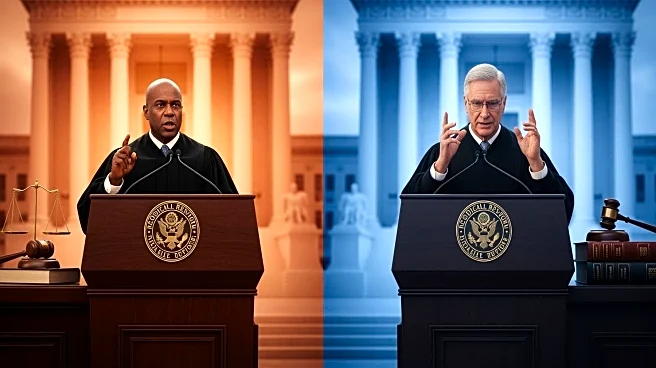What's Happening?
The Supreme Court has declined to review the case of Stacey Humphreys, a Georgia man sentenced to death, despite allegations of juror misconduct during his trial. Justice Sonia Sotomayor, joined by Justices Elena Kagan and Ketanji Brown Jackson, dissented,
arguing that the court's decision allows 'extraordinary misconduct to stand.' Humphreys was convicted of murdering two women, and his legal team claims a juror misled others during deliberations, impacting the verdict. The juror allegedly concealed personal experiences that could have influenced her judgment, leading to a death sentence instead of life imprisonment. The majority of justices did not provide a reason for declining the case.
Why It's Important?
This decision highlights ongoing debates about the Supreme Court's approach to cases involving the death penalty and juror misconduct. The refusal to hear Humphreys' case underscores the court's stance on procedural bars and the no-impeachment rule, which limits the use of juror testimony to challenge verdicts. Critics argue that this could undermine defendants' rights to fair trials, particularly in capital cases. The dissenting justices emphasize the need for scrutiny in cases where juror bias may infringe on constitutional rights, raising concerns about the integrity of the judicial process.
What's Next?
With the Supreme Court's refusal to review the case, Humphreys' legal options are limited. His defense team may seek alternative legal avenues, but the procedural barriers remain significant. The decision may prompt further discussions on the need for reform in handling juror misconduct claims, especially in death penalty cases. Legal experts and civil rights advocates may push for changes to ensure fair trial standards are upheld, potentially influencing future court rulings and legislative actions.
















